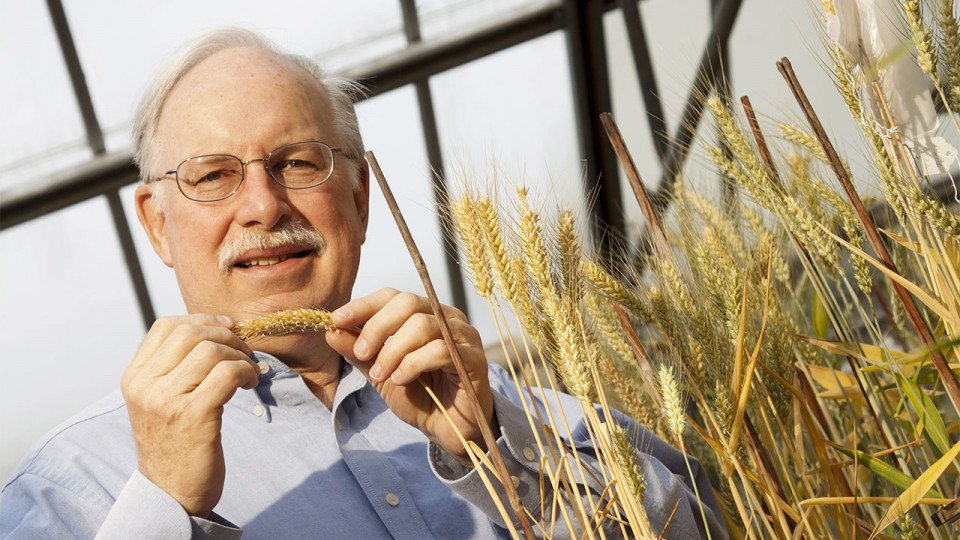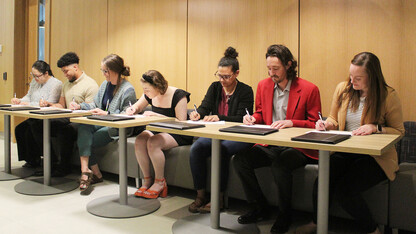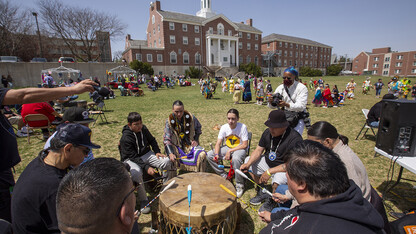· 4 min read
Project aims to boost global wheat yields

A University of Nebraska-Lincoln research team has earned a three-year grant from the U.S. Department of Agriculture to develop higher-yielding lines of hybrid wheat that can meet rising demand for the staple food crop.
Nebraska’s Stephen Baenziger, professor of agronomy and horticulture and Nebraska Wheat Growers presidential chair, will lead the project in conjunction with colleagues from Texas A&M University, Kansas State University and the International Maize and Wheat Improvement Center. Awarded by the USDA’s National Institute of Food and Agriculture, the grant represents part of a U.S. contribution to the International Wheat Yield Partnership.
“With the expected increasing demand for agricultural products – especially staple grains like wheat – and knowing the current wheat yield trajectory will not meet the future demand, we feel it is critical to try new approaches,” Baenziger said.
Though wheat yields are currently rising at a rate of 0.9 percent per year, projections show that feeding the growing global population will require annual yield increases of 1.7 percent. The International Wheat Yield Partnership is a voluntary consortium of international public funders, research organizations and private-industry partners aiming to increase the genetic yield potential of wheat by up to 50 percent in the next 20 years.
Researchers believe that hybrid wheat, which is more climate-resilient than inbred wheat, can contribute to this goal. Because wheat is self-pollinated, one of the project’s major objectives is to transform wheat into a cross-pollinated crop. Wheat breeding programs at Nebraska and Texas A&M will be screened for floral and plant traits that more efficiently produce hybrid seed. Researchers will also create and test hybrids to establish, confirm and characterize genetic lines that boast greater yields or climate resilience than the parent lines bred to create them. The project will further explore methods of creating hybrid seed on a commercial scale.
In the long term, the project will attempt to develop a transparent, accessible public foundation for hybrid wheat research. It is expected that the private sector will be the main provider of hybrid seed to growers in the United States.
Baenziger said geography represents one of the primary reasons Nebraska has a particular interest in hybrid wheat.
“The High Plains is an ideal place to produce hybrid wheat seed because of its irrigation and its early morning wind, which supports cross-pollination,” he said.
Nebraska’s wheat breeding program has been internationally known for decades. In 1963, a team at Nebraska made a major discovery of a restorer gene that enabled the development of hybrid wheat. At that time, it was considered the missing link in efforts to produce such wheat. Public and private research efforts continued through the 1970s and 1980s before declining. Baenziger said he believes current circumstances have created a great opportunity to revisit the development of hybrid wheat.
“With new genetic and chemical tools available today, and funding from NIFA-USDA, we think the time is right to try to attempt to create a viable hybrid wheat market again,” he said.
Others Nebraska researchers involved with the project are Vikas Belamkar, research assistant professor, and graduate students Nicholas Garst and Amanda Easterly. The team also includes plant breeders and researchers Amir Ibrahim and Jackie Rudd from Texas A&M; Jesse Poland from Kansas State; and Bhoja Basnet from the International Maize and Wheat Improvement Center.
Baenziger said the project has links to hybrid wheat efforts at Saaten-Union Recherche in France; the Leibniz Institute of Plant Genetics and Crop Plant Research in Germany, led by Jochen Reif; and the University of Hohenheim in Germany, led by Friedrich Longin.








